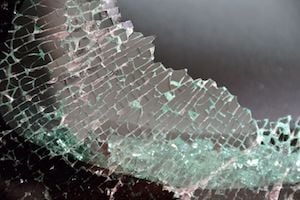North Carolina Criminal Law 14-72.7: Chop Shop Activity
 Under North Carolina Criminal Law Chapter 14-72.7, it is a felony crime for an individual to purchase, sell, transfer, receive, and/or possess a motor vehicle and/or motor vehicle parts with an altered VIN and/or VPIN.
Under North Carolina Criminal Law Chapter 14-72.7, it is a felony crime for an individual to purchase, sell, transfer, receive, and/or possess a motor vehicle and/or motor vehicle parts with an altered VIN and/or VPIN.
The State has the “Burden of Proof” to present evidence of a prima facie case in order to obtain a conviction.
For a felony or misdemeanor charge, that legal burden is known as Proof Beyond a Reasonable Doubt.
The “first facts” to prove a violation of North Carolina Criminal Law Chapter 14-72.7(a)(3) are generally:
- The Defendant purchased, disposed of, sold, transferred, received, possessed a motor vehicle and/or motor vehicle part where the VIN and/or VPIN had been altered, counterfeited, defaced, destroyed, disguised, falsified, forged, obliterated, removed
- The Defendant knew and/or had reasonable grounds to believe that the VIN or VPIN had been altered, counterfeited, defaced, destroyed, disguised, falsified, forged, obliterated, removed
A “chop shop” is a place where individuals dismantle stolen vehicles so that the dismantled vehicles and/or parts from those vehicles can be sold.
For example, individuals will buy a stripped, flooded, or burned-out car from an auction or a salvage yard to obtain a valid title — and then they’ll steal another car (often of the same make and model) to strip the parts.
Once the parts are built on to the legally obtained vehicle, it’ll look brand new — and it is nearly impossible to tell if the parts are stolen because they carry no identification numbers.
1. Defendant steals a car from the CarMax parking lot on Independence Road in Charlotte during the early hours of the morning.
Defendant conceals the car in a garage and removes the engine and other parts of the vehicle. Defendant then advertises on Craigslist posting for Mecklenburg County that he has car parts for a discounted price.
Defendant makes a hefty profit from illegally selling stolen car parts. Defendant can be convicted of chop shop activity pursuant to 14-72.7(a)(3).
2. Defendant negotiates with an auto dealer to purchase a stolen car where the VIN number has been altered to make the car look legal. Defendant knows the car is stolen. Defendant purchases the stolen car from the auto dealer. Defendant can be convicted of chop shop activity.
3. Similar Offenses or Related Legal Issues- North Carolina Criminal Law 14-56: Breaking or Entering Into a Motor Vehicle
- North Carolina Criminal Law 14-72(A): Felonious Larceny - Goods Worth More Than $1,000
- What is an Indictment?
- Do I have a Warrant in North Carolina?
The provisions of 14-72.7(a)(3) DO NOT apply to either of the following innocent activities under North Carolina Criminal Law Chapter 14-72.7:
(1) Purchasing, disposing of, selling, transferring, receiving, possessing, crushing, or compacting a motor vehicle or motor vehicle part in good faith and without knowledge of previous illegal activity in regard to that vehicle or part, as long as the person engaging in the activity does not remove a vehicle identification number or vehicle part identification number before or during the activity.
(2) Purchasing, disposing of, selling, transferring, receiving, possessing, crushing, or compacting a motor vehicle or motor vehicle part after law enforcement proceedings are completed or as a part of law enforcement proceedings, as long as the activity is not in conflict with law enforcement proceedings.
Larceny and other “theft crimes” are often subject to common law defenses.
Intent and mens rea (an “evil” criminal mind) are relevant to criminal charges involving theft, dishonesty, and crimes of moral turpitude.
As such, mistake is a defense to larceny, predicated on a foundation of reasonableness.
5. PenaltiesFelony Chop Shop Activity, in violation of North Carolina Criminal Law Chapter 14-72.7, is a Class G felony punishable by a maximum period of incarceration (confinement) of 47 months in the custody of the DAC – the North Carolina Department of Adult Corrections.
Crimes of theft and dishonesty, depending on the Prior Record Level (PRL) of the Defendant, may be subject to lesser punishments that do not result in active prison time or being sent to jail.
Structured sentencing pursuant to the NC Sentencing Guidelines / Punishment Grids indicate judgments in the I/A and A ranges.
- I/A - Intermediate or Active Punishment, which may include things like:
- a. Supervised Probation
- b. House Arrest
- c. Eletronic Monitoring (EM)
- d. Split or “Special Terms” of Incarceration
- e. Court Costs
- f. Fines
- g. Community Service
- h. Restitution to the victim(s)
- A – Active period of punishment, mandating prison
 Part of legal representation for criminal charges necessarily includes explaining the legal system and how court works. It helps to know whether jail is possible and whether there are options to avoid a conviction in the first place.
Part of legal representation for criminal charges necessarily includes explaining the legal system and how court works. It helps to know whether jail is possible and whether there are options to avoid a conviction in the first place.
Our Charlotte criminal defense lawyers help people during difficult periods in their lives. We offer sound legal advice, predicated on a desire to serve others.
We firmly believe the best decisions in life are more easily made if you possess good information.
Larceny charges often carry consequences in addition to those possibly imposed by the Court (the Judge).
A conviction for crimes of theft, and it doesn’t much matter whether it’s for a misdemeanor or felony charge, can make it difficult to find a good job.
Obviously being a convicted felon is something to be avoided, if possible. Crimes of dishonesty carry a social stigma.
Being branded a “thief” is tough. Not everyone understands the background of what put someone in the position of facing criminal charges in court or being indicted.
Felony charges therefore demand thoughtful consideration your legal options.
It’s a good idea to examine the worst-case scenario, which in certain circumstances, requires balancing the possibility of jail time with a realistic assessment of the strength of any legal defenses and the likelihood of prevailing at trial.
Careful review of the fact-pattern, what took place on scene and/or as a part of the associated criminal investigation, is therefore merited.
That often requires obtaining a formal copy of the “discovery” for the case.
In Mecklenburg County, the District Attorney’s Office provides voluntary discovery for felony charges.
Prosecutors in Charlotte work hard to comply with Article 48 of the pretrial procedures for discovery in Superior Court, pursuant to N.C.G.S. 15A-902.
In 2019 the DA’s Office voluntarily adopted a progressive internal policy that mandates full and complete disclosure of exculpatory evidence under both Brady and Giglio.
We offer a free, confidential consultation for criminal charges. That’s true both for matters we may handle in North Carolina.
Everything we discuss in consultation is strictly confidential.
Our defense lawyers regularly travel throughout North Carolina, helping clients with legal matters in Iredell County (Statesville and Mooresville), Union County (Monroe NC), and Rowan County (Salisbury).
So if you Googled, “Lawyers Near Me” and you live in the Charlotte-Metro region or in Western North Carolina, we may be able to help with serious felony charges, DWI charges, and trafficking in drugs cases.
Call NOW to schedule your free consultation: 704-342-4357
Please note, a legal consultation is not the same thing as or otherwise intended to be “free legal advice.”
The purpose of consultation ultimately involves retention of legal services and legal representation.
Your defense deserves a review of the facts and circumstances of the case.
That often involves obtaining copies of police reports, speaking with witnesses and expending time determining whether defenses exist, which would be part of representation and legal advice.
If you are interested in retaining our Charlotte criminal lawyers, you may email Bill Powers at: Bill@CarolinaAttorneys.com
Helpful Information About Criminal Charges Powers Law Firm PA Home
Powers Law Firm PA Home













